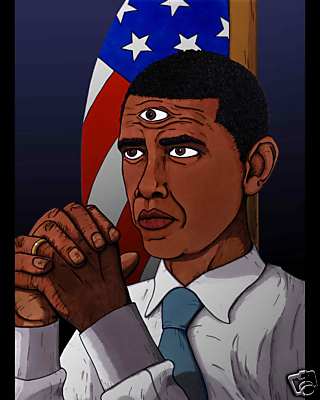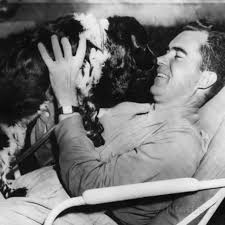FROST: So what in a sense, you’re saying is that there are certain situations, and the Huston Plan or that part of it was one of them, where the president can decide that it’s in the best interests of the nation or something, and do something illegal.
NIXON: Well, when the president does it that means that it is not illegal.
FROST: By definition.
NIXON: Exactly. Exactly. If the president, for example, approves something because of the national security, or in this case because of a threat to internal peace and order of significant magnitude, then the president’s decision in that instance is one that enables those who carry it out, to carry it out without violating a law. Otherwise they’re in an impossible position.
FROST: So, that in other words, really you were saying in that answer, really, between the burglary and murder, again, there’s no subtle way to say that there was murder of a dissenter in this country because I don’t know any evidence to that effect at all. But, the point is: just the dividing line, is that in fact, the dividing line is the president’s judgment?
NIXON: Yes, and the dividing line and, just so that one does not get the impression, that a president can run amok in this country and get away with it, we have to have in mind that a president has to come up before the electorate. We also have to have in mind, that a president has to get appropriations from the Congress. We have to have in mind, for example, that as far as the CIA’s covert operations are concerned, as far as the FBI’s covert operations are concerned, through the years, they have been disclosed on a very, very limited basis to trusted members of Congress. I don’t know whether it can be done today or not.
FROST: Pulling some of our discussions together, as it were; speaking of the Presidency and in an interrogatory filed with the Church Committee, you stated, quote, “It’s quite obvious that there are certain inherently government activities, which, if undertaken by the sovereign in protection of the interests of the nation’s security are lawful, but which if undertaken by private persons, are not.” What, at root, did you have in mind there?
NIXON: Well, what I, at root I had in mind I think was perhaps much better stated by Lincoln during the War between the States. Lincoln said, and I think I can remember the quote almost exactly, he said, “Actions which otherwise would be unconstitutional, could become lawful if undertaken for the purpose of preserving the Constitution and the Nation.”
Now that’s the kind of action I’m referring to. Of course in Lincoln’s case it was the survival of the Union in wartime, it’s the defense of the nation and, who knows, perhaps the survival of the nation.
…………………………………
Adolf Hitler spent years evading taxes and owed German authorities 405,000 Reichsmarks — equivalent to $8 million today — by the time his tax debts were forgiven soon after he took power, a researcher says.
[…]
Hitler’s troubles with the Munich tax office suddenly vanished shortly after he took power in 1933.
The infamous 1933 Enabling Act gave Hitler dictatorial powers but also helped him win his battles with the Munich tax office for good. The office first declared Hitler liberated from income tax in 1934 and in 1935 absolved him of his past tax debt of 405,494 Reichsmarks.
“That was the end of his tax problems,” Dubon said. “It was all legalized, more or less.”
Dubon said the head of the Munich tax office, Ludwig Mirre, excused Hitler from paying tax only after first formally writing to him to ask permission. An assistant to Hitler wrote back to Mirre: “Herr Hitler accepts your proposal.”
Mirre was promoted a month later to head of the German tax office and given a 41 percent pay rise.
“It’s all so ridiculous,” said Dubon. “But in a dictatorship everything the dictator does is correct.”
………………………………….
U.S. President George Bush decided to skip seeking warrants for international wiretaps because the court was challenging him at an unprecedented rate.
A review of Justice Department reports to Congress by Hearst newspapers shows the 26-year-old Foreign Intelligence Surveillance Court modified more wiretap requests from the Bush administration than the four previous presidential administrations combined.
The 11-judge court that authorizes FISA wiretaps modified only two search warrant orders out of the 13,102 applications approved over the first 22 years of the court’s operation.
But since 2001, the judges have modified 179 of the 5,645 requests for surveillance by the Bush administration, the report said. A total of 173 of those court-ordered “substantive modifications” took place in 2003 and 2004. And, the judges also rejected or deferred at least six requests for warrants during those two years — the first outright rejection of a wiretap request in the court’s history.
……………………………..
Well, someone has to stop the “Semi-Communistic ideology” of the Catholic Workers League. Right? (Nay. There are “suspicious radiation levels outside more than 100 predominantly Muslim-related sites in the greater Washington, D.C., area, as well as various sites in other cities.”





